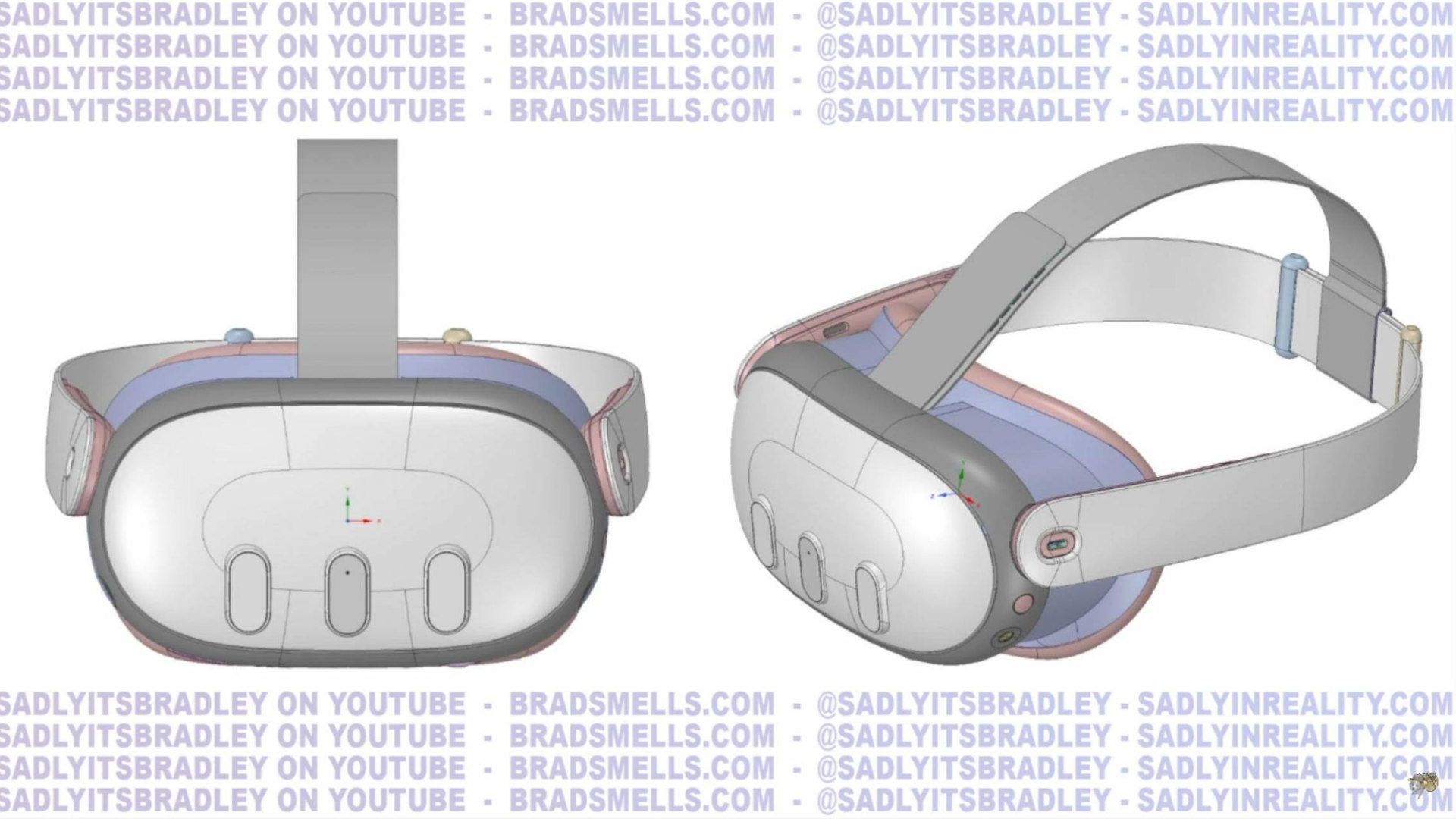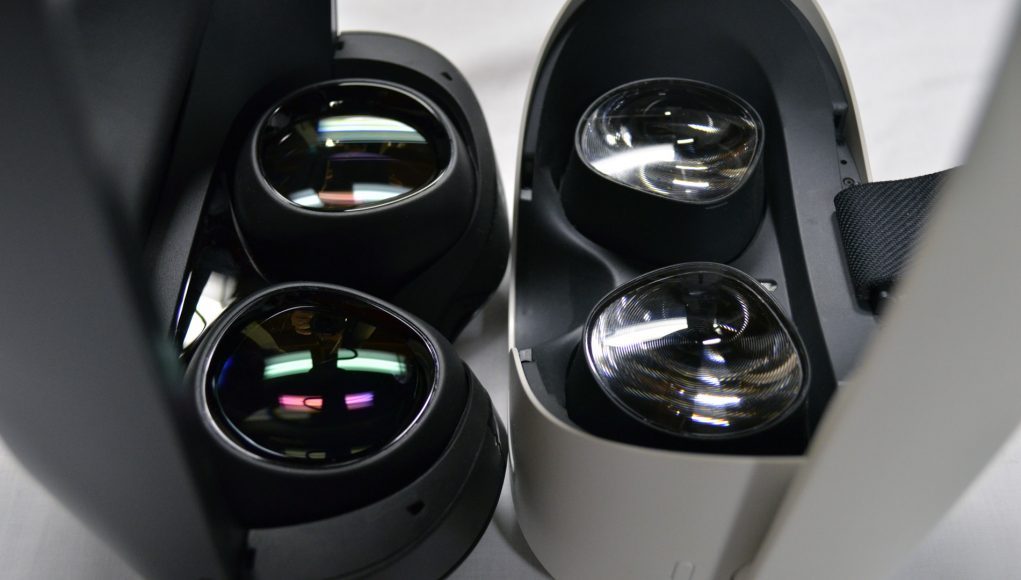It seems Meta is looking to stoke some hype for its next Quest headset just days before Apple is slated to unveil its own, as Bloomberg’s Mark Gurman released Quest 3’s first hands-on, confirming a number of features from previous leaks in the process.
Gurman detailed a number of features in his hands-on with the upcoming mixed reality headset, saying that Quest 3 feels lighter and thinner than the Quest 2, featuring a stronger strap with fabric sides.
Like we’ve seen in previous renders, Quest 3 is said to feature three vertical “pill-shaped sensor areas” on the front of the device. On the left and right are color video pass-through sensors and standard cameras, while a depth sensor is placed in the middle, which is used for environment meshing and automatic identification of surrounding walls.
Tracking cameras are found on both left and right bottom sides of the device, departing from Quest 2’s four-sensor array placed on each corner of the headset. Sounds pretty similar to the image featured in a previous leak from Bradely Lynch.

Quest 3 is said to come with a physical interpupillary distance (IPD) adjustment wheel next to the volume rocker which will allow users to dial in a finer IPD measurement. As a departure from its Quest Pro-esque feature set, Quest 3 is said to lack face and eye-tracking, which means none of the lauded ‘social presence’ features or foveated rendering.
Notably, Gurman says the actual clarity and VR displays within the Quest 3 feel “similar to those in the Quest 2 — despite the resolution being rumored to be slightly higher.” It seems Quest 3’s claim to fame will be its color mixed reality passthrough and faster performance thanks to a second-generation Qualcomm Snapdragon XR2.
“[V]ideo pass-through on the Quest 3 presented colors more accurately and offered an almost lifelike rendering of the real world. I was even able to use my phone while wearing the headset, something that often feels impossible on a Quest 2,” Gurman says.
There’s no mention of optics, or whether it will indeed use pancake lenses like Quest Pro or a Fresnel lens like Quest 2.
From Gurman’s description, it seems Touch controllers aren’t getting the Pro-level design either, as they appear to be optically tracked by the headset via IR markers à la Quest 2. It’s said to lack both Quest Pro’s embedded controller sensors and Quest 2’s hoop-style tracking design, which could be interesting.
Pricing for the Quest 3 isn’t finalized, however it’s expected to be higher than the Quest 2 at around $500. Meta is also expected to concurrently offer Quest 2, making for the widest headset lineup the company has ever offered at one time.
Gurman says Meta is set to target the cheaper headset segment while Apple targets the upscale market with its reported $3,000 mixed reality device. While Apple’s headset is expected to make its debut on June 5th, Gurman says Meta is bringing Quest 3 in October.







